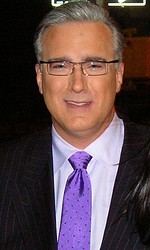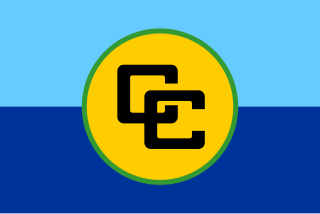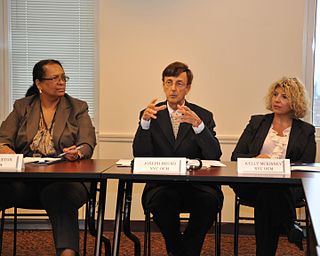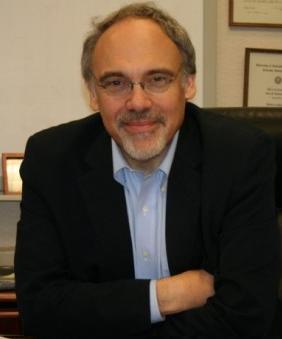
Bioterrorism is terrorism involving the intentional release or dissemination of biological agents. These agents include bacteria, viruses, insects, fungi, and/or their toxins, and may be in a naturally occurring or a human-modified form, in much the same way as in biological warfare. Further, modern agribusiness is vulnerable to anti-agricultural attacks by terrorists, and such attacks can seriously damage economy as well as consumer confidence. The latter destructive activity is called agrobioterrorism and is a subtype of agro-terrorism.

The Federal Emergency Management Agency (FEMA) is an agency of the United States Department of Homeland Security (DHS), initially created under President Jimmy Carter by Presidential Reorganization Plan No. 3 of 1978 and implemented by two Executive Orders on April 1, 1979. The agency's primary purpose is to coordinate the response to a disaster that has occurred in the United States and that overwhelms the resources of local and state authorities. The governor of the state in which the disaster occurs must declare a state of emergency and formally request from the President that FEMA and the federal government respond to the disaster. The only exception to the state's gubernatorial declaration requirement occurs when an emergency or disaster takes place on federal property or to a federal asset—for example, the 1995 bombing of the Alfred P. Murrah Federal Building in Oklahoma City, Oklahoma, or the Space Shuttle Columbia in the 2003 return-flight disaster.
MSNBC is an American news-based television channel and website headquartered in New York City. It is owned by NBCUniversal — a subsidiary of Comcast — and provides news coverage and political commentary. The network produces live broadcasts for its channel from studios at 30 Rockefeller Plaza in Manhattan, New York City, and aggregates its coverage and commentary on its website, msnbc.com.
Survivalism is a social movement of individuals or groups who proactively prepare for emergencies, such as natural disasters, and other disasters causing disruption to social order caused by political or economic crises. Preparations may anticipate short-term scenarios or long-term, on scales ranging from personal adversity, to local disruption of services, to international or global catastrophe. There is no bright line dividing general emergency preparedness from prepping in the form of survivalism, but a qualitative distinction is often recognized whereby preppers/survivalists prepare especially extensively because they have higher estimations of the risk of catastrophes happening. Nonetheless, prepping can be as limited as preparing for a personal emergency, or it can be as extensive as a personal identity or collective identity with a devoted lifestyle.
Preparations for earthquakes can consist of survival measures, preparation that will improve survival in the event of an earthquake, or mitigating measures, that seek to minimise the effect of an earthquake.Common survival measures include storing food and water for an emergency, and educating individuals what to do during an earthquake. Mitigating measures can include firmly securing large items of furniture, TV and computer screens that may otherwise fall over in an earthquake. Likewise, avoiding storing items above beds or sofas reduces the chance of objects falling on individuals.

Keith Theodore Olbermann is an American sports and political commentator and writer. Olbermann spent the first 20 years of his career in sports journalism. He was a sports correspondent for CNN and for local TV and radio stations in the 1980s, winning the Best Sportscaster award from the California Associated Press three times. He co-hosted ESPN's SportsCenter from 1992 to 1997. From 1998 to 2001, he was a producer and anchor for Fox Sports Net and a host for Fox Sports' coverage of Major League Baseball.

The Caribbean Disaster Emergency Management Agency (CDEMA) is an inter-regional supportive network of independent emergency units throughout the Caribbean region. Formed on September 1, 2005, as the Caribbean Disaster Emergency Response Agency (CDERA), it underwent a name change to CDEMA in September 2009.
Aton, ATON or variants thereof may refer to:

Emergency management is a science and a system charged with creating the framework within which communities reduce vulnerability to hazards and cope with disasters. Emergency management, despite its name, does not actually focus on the management of emergencies, Emergency management or Disaster management can be understood as minor events with limited impacts and are managed through the day-to-day functions of a community. Instead, emergency management focuses on the management of disasters, which are events that produce more impacts than a community can handle on its own. The management of disasters tends to require some combination of activity from individuals and households, organizations, local, and/or higher levels of government. Although many different terminologies exist globally, the activities of emergency management can be generally categorized into preparedness, response, mitigation, and recovery, although other terms such as disaster risk reduction and prevention are also common. The outcome of emergency management is to prevent disasters and where this is not possible, to reduce their harmful impacts.

A survival kit is a package of basic tools and supplies prepared as an aid to survival in an emergency. Civil and military aircraft, lifeboats, and spacecraft are equipped with survival kits.

Cyclone mitigation encompasses the actions and planning taken before a tropical cyclone strikes to mitigate damage and injury from the storm. Knowledge of tropical cyclone impacts on an area help plan for future possibilities. Preparedness may involve preparations made by individuals as well as centralized efforts by governments or other organizations. Tracking storms during the tropical cyclone season helps individuals know current threats. Regional Specialized Meteorological Centers and Tropical Cyclone Warning Centers provide current information and forecasts to help individuals make the best decision possible.

Joseph F. Bruno is a public official in New York City who has served as a lawyer, FDNY Fire Commissioner, New York City Civil Court Judge and New York State Supreme Court Judge. He most recently served as Commissioner of the New York City Office of Emergency Management.

Irwin Redlener is an American pediatrician and public health activist who specializes in health care for underserved children and disaster planning, response, and recovery. He is the author of The Future of Us: What the Dreams of Children Mean for 21st Century America (2017/2020) and the author of Americans at Risk: Why We Are Not Prepared for Megadisasters and What We Can Do Now (2006).

TheGrio, styled as theGrio, is an American television network and website with news, opinion, entertainment and video content geared toward African-Americans.
"Preparedness 101: Zombie Apocalypse" is a blog post made in May 2011 by the United States Centers for Disease Control and Prevention (CDC) that uses a zombie apocalypse to raise public awareness of emergency preparedness. In a blog post titled "Preparedness 101: Zombie Apocalypse", the director of the CDC's Office of Public Health Preparedness and Response, Rear Admiral Ali S. Khan writes: "Take a zombie apocalypse for example. That's right, I said z-o-m-b-i-e a-p-o-c-a-l-y-p-s-e. You may laugh now, but when it happens you'll be happy you read this, and hey, maybe you'll even learn a thing or two about how to prepare for a real emergency." Comparing the upcoming hurricane season and possible pandemics to "flesh-eating zombies" from the horror film Night of the Living Dead and the video game series Resident Evil, Khan recommends Americans prepare for natural disasters as they would have prepared for "ravenous monsters". The blog post was part of a larger zombie-themed campaign retired by mid-2022 and replaced with the Prep Your Health CDC website.

The Waffle House Index is a metric named after the ubiquitous Southern US restaurant chain Waffle House known for its 24-hour, 365-day service. Since this restaurant always remains open, it has given rise to an informal but useful metric to determine the severity of a storm and the likely scale of assistance required for disaster recovery. It was coined by former administrator Craig Fugate of the Federal Emergency Management Agency (FEMA). The metric is unofficially used by FEMA to inform disaster response.

Disaster preparedness in museums, galleries, libraries, archives and private collections, involves any actions taken to plan for, prevent, respond or recover from natural disasters and other events that can cause damage or loss to cultural property. 'Disasters' in this context may include large-scale natural events such as earthquakes, flooding or bushfire, as well as human-caused events such as theft and vandalism. Increasingly, anthropogenic climate change is a factor in cultural heritage disaster planning, due to rising sea levels, changes in rainfall patterns, warming average temperatures, and more frequent extreme weather events.

Syra Madad is an American pathogen preparedness expert and infectious disease epidemiologist. Madad is the Senior Director of the System-wide Special Pathogens Program at NYC Health + Hospitals where she is part of the executive leadership team which oversees New York City's response to the Coronavirus disease 2019 pandemic in the city's 11 public hospitals. She was featured in the Netflix documentary series Pandemic: How to Prevent an Outbreak and the Discovery Channel documentary The Vaccine: Conquering COVID.

Thomas Dean Kirsch is an American physician, scientist, and writer whose career has focused on disaster preparedness and response. He has been described as "...an expert in disaster research, planning and response, and disaster and wilderness medicine... both nationally and internationally".














